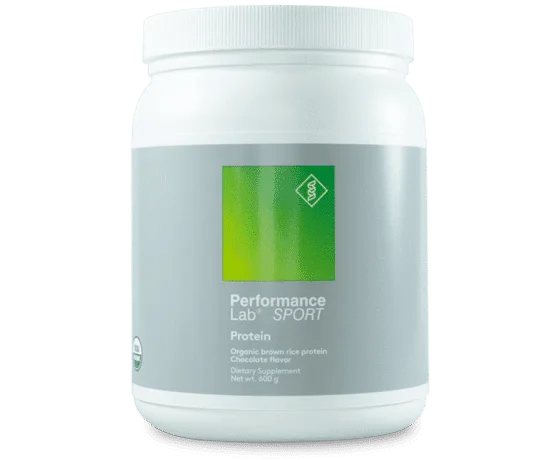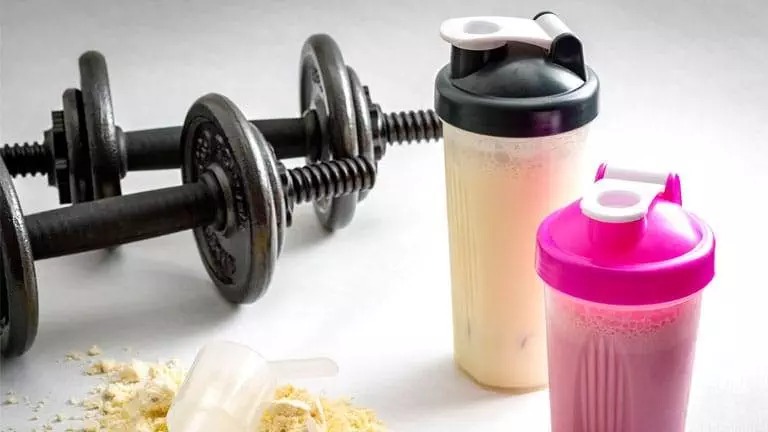There’s much debate as to what the ideal amount of protein per day is, especially as it depends on numerous factors such as your age, weight, and gender.
That being said, an ideal figure for the average person is:
- 0.8 grams of protein per kg of bodyweight
- 0.36 grams per pound of bodyweight
But when it comes to losing weight, what is the optimal amount of protein you need per day?
In the following article, I’ll answer that very question. Here’s everything that you need to know.
Daily Protein Intake for Weight Loss
Before you go ahead and buy every protein supplement under the sun, you’ll first need to find out what your recommended daily allowance for protein is.
According to many experts, this typically equates to around 10-35% of your overall daily caloric intake (1).
Anything over this amount for the average person isn’t essential unless you exercise regularly. But we’ll get to that in the next section.
Either way, it’s important to stick to your calorie goals, especially when you’re trying to lose weight.
Here’s a baseline amount of protein that experts recommend you consume per day to avoid absolute deficiency:
- 56 grams of protein per day for sedentary men
- 46 grams of protein per day for sedentary women
Despite the above, many studies indicate that those looking to preserve lean body and muscle mass while dieting will benefit from a high-protein diet (2).
The main thing to take away is that everyone is different, and many factors such as your age and activity level determine how much protein you need each day.
Luckily, you can remove any guesswork by using an online protein calculator to work out your optimal protein intake regardless of your goals.
How Much Protein Per Day for Exercise
If you’re planning on exercising regularly while losing weight, you’ll want to incorporate more protein into your diet than the absolute minimum.
That way, you can help your body to recover more efficiently and retain as much muscle mass as possible.
One thing to note is that unless you’re an athlete or exercise regularly, then you might be consuming more protein than you need.
If you lead a sedentary lifestyle, then the recommended 10-35% daily intake should be more than sufficient enough.
But typically speaking, the average person on a diet needs around 0.8 to 1 g of protein per kg of body weight (0.4 to 0.5 g per lb).
However, if you exercise more than 10-12 hours per week, it’s recommended that you up this to 1.2 – 1.7 g of protein per kg of body weight (0.5 – 0.8 g per lb).
Calorie Counting for Weight Loss
If you’re serious about your weight loss journey, it’s important to realise that you won’t get instant results.
Unfortunately, there’s no such thing as a magic pill that allows you to drop 10 lbs overnight. At least not yet!
To give yourself the best chance of reaching your weight loss goals, you need to remain in a consistent caloric deficit.
The best way to ensure that you stick to one is by counting your calories.
Sure, this may seem like a tedious process, but online tools such as MyFitnessPal have made it easier than ever before to keep track of your calories.
But that’s not your only option. If you prefer, you could always go old school and stick with pen and paper! The choice is entirely yours.
Do You Need a Protein Supplement to Lose Weight?
Protein supplements aren’t an essential component of a healthy, well-balanced diet.
But for those who struggle to meet their daily protein goals, they are incredibly useful.
That makes protein powders, bars, and other similar sources a great option particularly if you’re on the go a lot and rely on convenience.
If you do decide to invest in a protein supplement, we’d highly recommend checking out Performance Lab Protein.
This particular protein powder is ideal for those looking for faster body composition. A bonus is that it features USDA-certified organic ingredients for added peace of mind.
Plus, its high amount of l-leucine is delivered up to 30% faster than whey protein, which means it’s capable of improving your recovery considerably.
If you’d like to find out more about this protein powder, then feel free to check out our complete Performance Lab Protein review.

High Protein Diets For Weight Loss
If you’re looking to achieve the best results when losing weight, I’d recommend following a high protein diet.
After all, a 2018 study (3) confirmed that elevated protein consumption leads to more significant weight loss in older but otherwise healthy women.
Regardless of your age and gender, protein is better at keeping you fuller for longer than fat and carbohydrates.
So, it can most definitely be said that protein is capable of playing a vital role in helping you to lose weight.
Despite this, a consistent caloric deficit is equally important as if you consume equal to or more than your maintenance calories, you won’t lose any weight.
It’s as simple as that!
Conclusion – How Much Protein Should I Eat to Lose Weight?
Overall, it’s clear that protein plays a critical role in the weight loss process. For that reason, we’d recommend that you include protein with every meal.
That way, you can stay fuller for longer, help your body recover more efficiently, and prevent yourself from falling off track with your weight loss progress.
The most important thing is that you remain in a consistent caloric deficit and continue to follow a healthy, well-balanced diet.
If you do just that, it’ll only be a matter of time before you see substantial results.
If you found this article useful, be sure to share your thoughts in the comments section below. Alternatively, be sure to check out the other articles and reviews on TheSportWriter.com
Good luck on your weight loss journey!
Featured Image Credit: Healthista





Leave a Reply